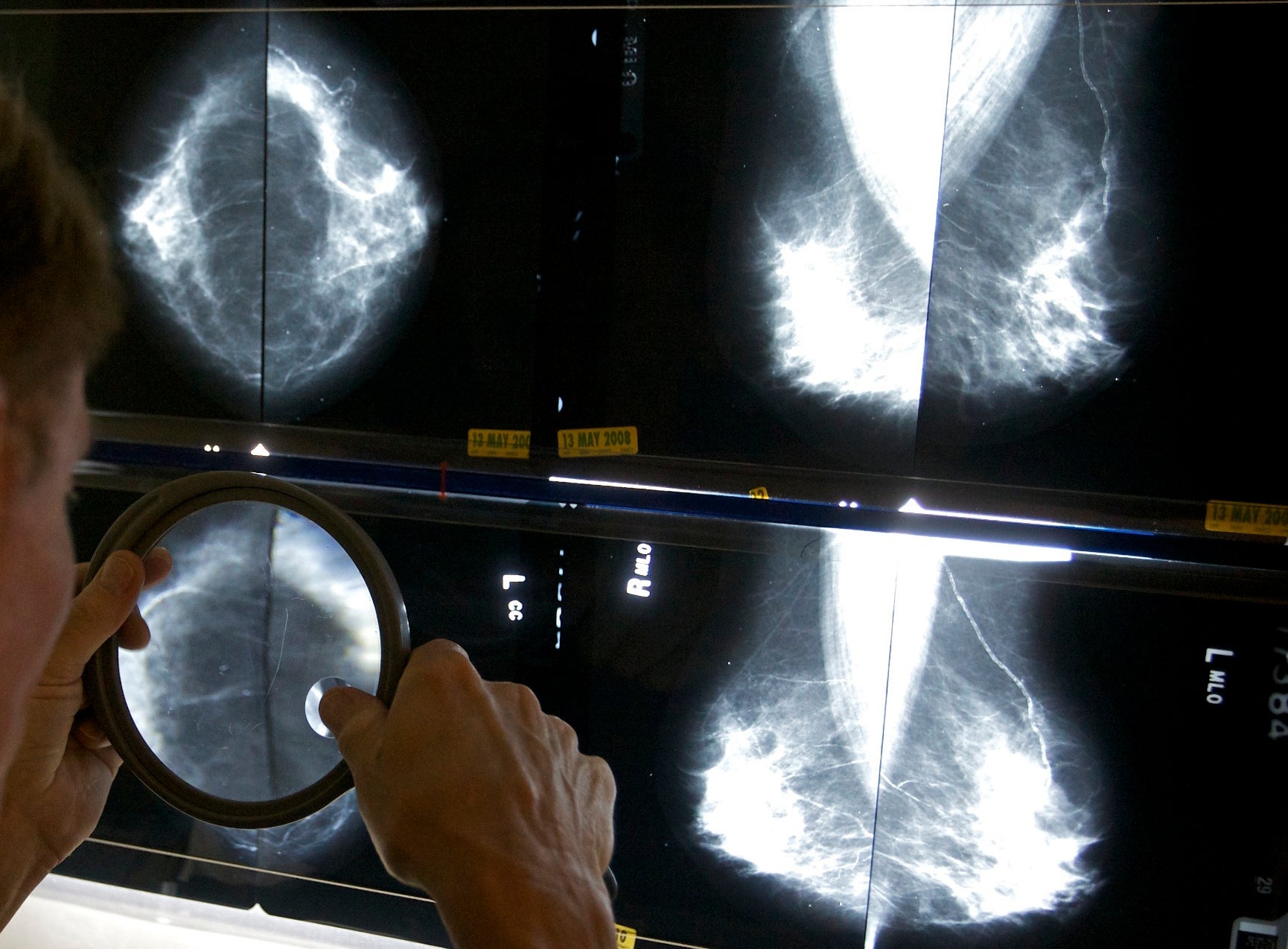US requires new info on breast density with all mammograms
U.S. women getting mammograms will soon receive information about their breast density because of new government rules

Your support helps us to tell the story
From reproductive rights to climate change to Big Tech, The Independent is on the ground when the story is developing. Whether it's investigating the financials of Elon Musk's pro-Trump PAC or producing our latest documentary, 'The A Word', which shines a light on the American women fighting for reproductive rights, we know how important it is to parse out the facts from the messaging.
At such a critical moment in US history, we need reporters on the ground. Your donation allows us to keep sending journalists to speak to both sides of the story.
The Independent is trusted by Americans across the entire political spectrum. And unlike many other quality news outlets, we choose not to lock Americans out of our reporting and analysis with paywalls. We believe quality journalism should be available to everyone, paid for by those who can afford it.
Your support makes all the difference.All U.S. women getting mammograms will soon receive information about their breast density, which can sometimes make cancer harder to spot.
The new requirements, finalized Thursday by the Food and Drug Administration, are aimed at standardizing the information given to millions of women following scans to detect breast cancer. Regulators first proposed the changes in 2019 and health care providers will have 18 months to comply with the policy.
Some states already require that women receive information on breast density.
About half of women over age 40 have dense breasts, with less fatty tissue and more connective and glandular tissue. That tissue appears white on X-rays, the same color as growths in the breast, making mammograms harder to read. Dense breast tissue is one of the factors that can increase a woman’s chances of developing cancer.
Under the new rules, women with dense breasts will receive a written memo alerting them that their status “makes it harder to find breast cancer.” Those patients will also be directed to speak with their doctor about their results.
Professional guidelines don’t specify next steps for women identified with dense breasts, but some physicians may recommend additional forms of scanning, including ultrasound or MRI.
___
The Associated Press Health and Science Department receives support from the Howard Hughes Medical Institute’s Science and Educational Media Group. The AP is solely responsible for all content.